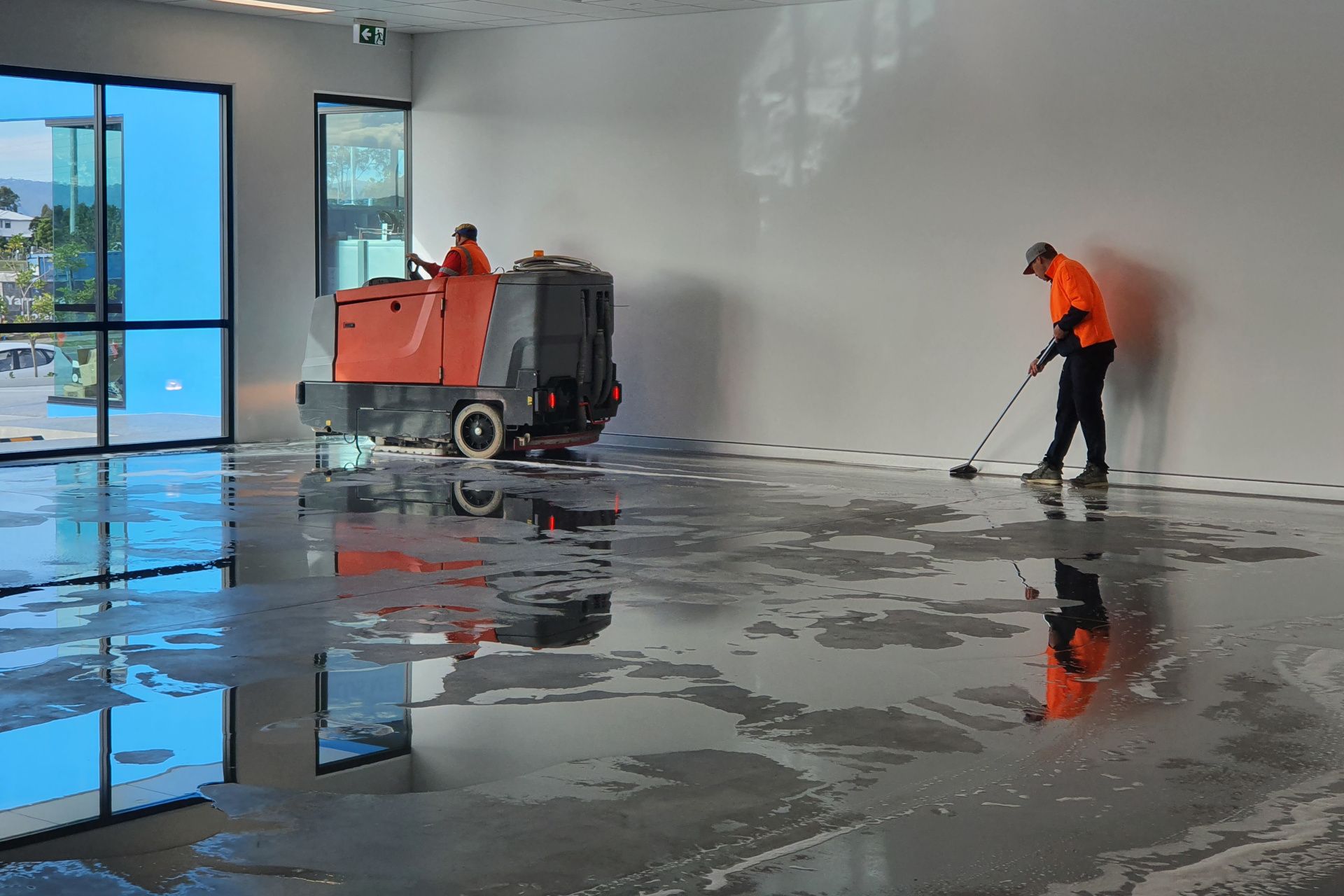
Natural stone surfaces, such as marble, granite, travertine, and limestone, are renowned for their beauty and durability. However, their porous nature makes them susceptible to staining if spills or debris are not promptly addressed. For homeowners and businesses seeking polishing concrete service in Maryland, maintaining the pristine condition of natural stone surfaces is essential. Identifying the type of stain and understanding the appropriate removal method is the first step toward protecting these valuable materials.
Stains on natural stone surfaces can stem from various sources, including oil, water, rust, or organic substances like coffee and wine. Each type of stain interacts differently with the stone’s surface, necessitating a tailored approach to removal. Misusing harsh chemicals or abrasive tools can exacerbate the problem, making it essential to rely on safe, proven methods.
Preparation Before Stain Removal
Before attempting to remove a stain, it is crucial to prepare the surface and gather the right tools. The first step is to identify the type of natural stone and confirm its finish, as this determines the appropriate cleaning method. For example, polished marble requires gentler treatment compared to honed or unsealed stone. For those in Maryland utilizing stone service in Maryland, professional assessments can ensure the correct techniques are applied.
The surface should be cleaned of loose debris using a soft cloth or a vacuum with a brush attachment. Avoid rubbing the stain during this step, as this can spread the discoloration or push it deeper into the stone. Using distilled water to dampen the surface can help prevent the cleaning agent from penetrating too deeply, protecting the stone’s integrity during the stain removal process.
Removing Organic Stains
Organic stains, caused by substances like food, wine, or coffee, are among the most common challenges faced by natural stone owners. These stains often leave discoloration that penetrates the stone’s surface. A poultice made from baking soda and hydrogen peroxide is a safe and effective way to address organic stains. The mixture should be applied to the stain and covered with plastic wrap to allow it to work overnight.
Professionals offering polishing concrete service in Maryland frequently use customized poultices to address deep-set stains while preserving the stone’s finish. Their expertise ensures the stain is removed without leaving scratches or dull patches, which can occur with improper cleaning techniques.
Addressing Oil-Based Stains
Oil-based stains, caused by grease, cooking oils, or lotions, require a different approach. These stains tend to darken the stone’s surface and can be particularly stubborn. A degreasing agent or a poultice made from baking soda and acetone can help lift the oil without damaging the stone. The solution should be applied carefully, ensuring that it does not spread to unaffected areas.
Property owners relying on stone service in Maryland often turn to professionals for oil stain removal, especially when dealing with delicate or high-value stone surfaces. Professional-grade cleaners and methods ensure the stain is fully eliminated while maintaining the stone’s natural luster.
Removing Rust and Metal Stains
Rust stains, which often result from metal objects left on the stone, are among the most challenging to remove. These stains typically appear as orange or brown discolorations and may require specialized rust removers designed for natural stone. Using household rust removers is not recommended, as they may contain harsh acids that can etch or damage the surface.
For Maryland residents seeking polishing concrete service in Maryland, professional care is essential for addressing rust stains. Technicians use products formulated specifically for natural stone to dissolve rust without compromising the stone’s structural or aesthetic properties.
Water Stains and Mineral Deposits
Water stains and mineral deposits are common on natural stone surfaces in bathrooms and kitchens. These stains often result from hard water, leaving a white or cloudy residue on the surface. A mixture of water and a pH-neutral cleaner can usually address these stains, but stubborn deposits may require the use of a mild vinegar solution. However, acidic solutions should be avoided on marble and limestone, as they can etch the surface.
For persistent water stains, polishing the stone surface may be necessary. Professionals offering stone service in Maryland often perform light polishing to remove water spots and restore the stone’s shine, ensuring that the surface looks as good as new.
Preventing Future Stains
While stain removal is essential, preventing stains from forming in the first place is equally important. Regular sealing of natural stone surfaces creates a protective barrier that reduces porosity and minimizes the risk of staining. Sealing should be done every six to twelve months, depending on the level of use and the type of stone.
In addition to sealing, using coasters, mats, and placemats can help protect the stone from spills and scratches. For property owners in Maryland, seeking professional maintenance through polishing concrete service in Maryland ensures that their natural stone surfaces remain protected and beautiful over time.
The Role of Professional Care
Natural stone surfaces are an investment that requires specialized care to maintain their elegance and durability. Professional care providers in Maryland offer a range of services, including deep cleaning, polishing, and sealing, to address stains and protect the stone from future damage. Their expertise ensures that the appropriate methods are used for each type of stain and stone, preserving the material’s natural beauty.
For those utilizing stone service in Maryland, professional assistance often means the difference between successful stain removal and permanent damage. By relying on trained technicians, property owners can enjoy peace of mind knowing their natural stone surfaces are in expert hands.
Conclusion
Stain removal from natural stone surfaces requires a careful and informed approach to protect the stone’s appearance and structural integrity.







